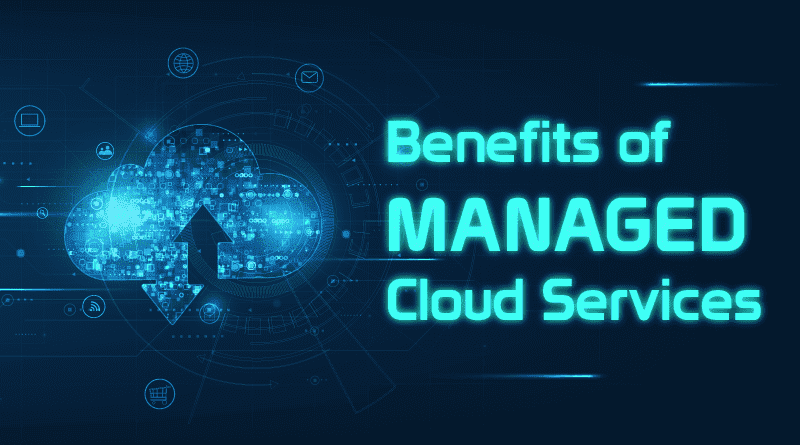Listen in Audio
Data management in this technological or advanced era is easier because of cloud computing. Cloud computing infrastructures are advanced and are compiled of advanced resources. It has become a huge demand with the growing technology demand. Also, the amount of data in every business has increased in the last decade which also became a factor to opt for cloud services.
However, managing the cloud service is a challenging job and requires enough expertise to handle the cloud infrastructure or the delivery model system. Nowadays, the cloud-native applications help businesses in streamlining their operations. Unlike traditional storage systems, today experts with hands-on experience build applications and collaborate with organization’s IT team. As a result, managing cloud resources are effectively managed.
You must think about how you will manage the cloud IT solution you pick for your infrastructure. You might delegate the management duties to your IT team. It is, nevertheless, the best strategy for your company.
You can connect with experts who assist you in managing the cloud solution through cloud-managed services. The cloud-managed service providers will relieve your company’s IT personnel of some or all of the cloud management duties. They might also provide management of particular cloud services or a comprehensive cloud implementation.
What is a managed cloud service?
The IT management offered by the cloud service provider gives organizations and their IT team freedom from handling technical issues. Also, outsourcing managed cloud service providers will allow organizations to make more strategic activities that will boost their business. Without expanding the payroll, organizations will get efficient support from managed cloud service providers. Even if organizations are having a small IT team, then also they will have less technical load.
Related: A Buyer’s Guide to Cloud Managed Services
Are managed cloud services and cloud hosting the same?
The answer is no! It is because managed cloud service is a service model where an outsourced IT team manages the cloud infrastructure. Different technical activities like enhancing cybersecurity, providing hybrid cloud infrastructure, leveraging AI infrastructure in the business ecosystem and many more are there. However, cheap cloud hosting means there are virtual servers different from physical pieces of hardware hosting websites and applications. In this hosting model, there is a cluster of servers interconnected with one network and host websites. So, if one server fails in the hosting operation, the other one in the same network will continue the same task.
Advantages of Cloud Managed Services
Upgrading tasks
The technology of network infrastructure is continuously evolving. So, cloud technology is also evolving which makes it necessary to get upgraded with the changing technology. Matching the rapid rate of innovation in cloud technology is a challenging task. Business organization’s activity might get affected because of investing extra time on upgrading resources. To stay updated in the terms of cloud infrastructure, managed cloud service providers will handle the upgrading part easily. They will provide cloud infrastructures with updated OS and software making your business more productive.
Affordability
Managed cloud service providers are ready to bear all operational and hardware costs on their shoulders. It means organizations do not have to worry about any challenges and cost-burden of technical resources. Managed services will work on the subscription model where users have to bear only recurring monthly expenses.
Pick A Managed Cloud Hosting Plans for Maximum -Performance!
The inherent advantages of adaptable cloud plans also provide significant strategic advantages over pricey, one-time acquisitions of physical equipment and their ensuing depreciation. The ability to change expenditure to match budget and computing needs makes it possible to spend more efficiently, which is excellent news for any budget. Employing a managed cloud services provider results in a more adaptable infrastructure.
No Rooms for Disaster
In this technological world, online businesses are vulnerable to several malicious activities that keep businesses at risk. If ransomware attacks your business’ online network. Businesses running on a low capital have no option but to pay the ransom or recover themselves if cloud infrastructure is hacked or gets attacked by ransomware viruses.
This is why you should opt for a managed cloud service provider that offers disaster support 24×7. They will help your applications or websites get quickly recovered from all kinds of disaster. That is why managed cloud services are earning credibility with quick support.
Competitive Edge
Compete with larger businesses and organizations easily with an advanced and robust cloud computing infrastructure. Data security is the top most factor that helps your business in getting a competitive-edge. The next feature that organizations use to leverage cloud computing is that firms are easy to scale.
After all when the cloud computing is deployed will give organizations a freedom to take accurate decisions, speed and analysis of the business decisions. All these efforts will add value in the businesses’ productivity and make small businesses a competitor of large businesses.
Related: Managed Cloud Services: Pros and Cons
Infrastructural Resources
Developing and setting up a cloud infrastructure is a time-consuming process. Also, there are many other resources required to get desired results out of it. Cloud computing infrastructure require several technical resources with professional manpower. Developing a centralized cloud computing infrastructure requires too much expertise.
So, managed cloud service providers will offer you the same at affordable prices. In such cases, organizations do not have to spend so many resources on setting up an infrastructure.
Businesses are more ready than ever to streamline their processes and create a resilient IT infrastructure as a result of the pandemic-related effects. Your ability to work with a seasoned managed services partner who has been approved by your cloud provider is crucial to the success of your cloud migration and usage.
Therefore, many businesses turn over continual cloud infrastructure optimization to MSPs rather than outsourcing emergency response. Executives may concentrate on things that are mission-critical while still assuring the security and effectiveness of their cloud assets thanks to this.







